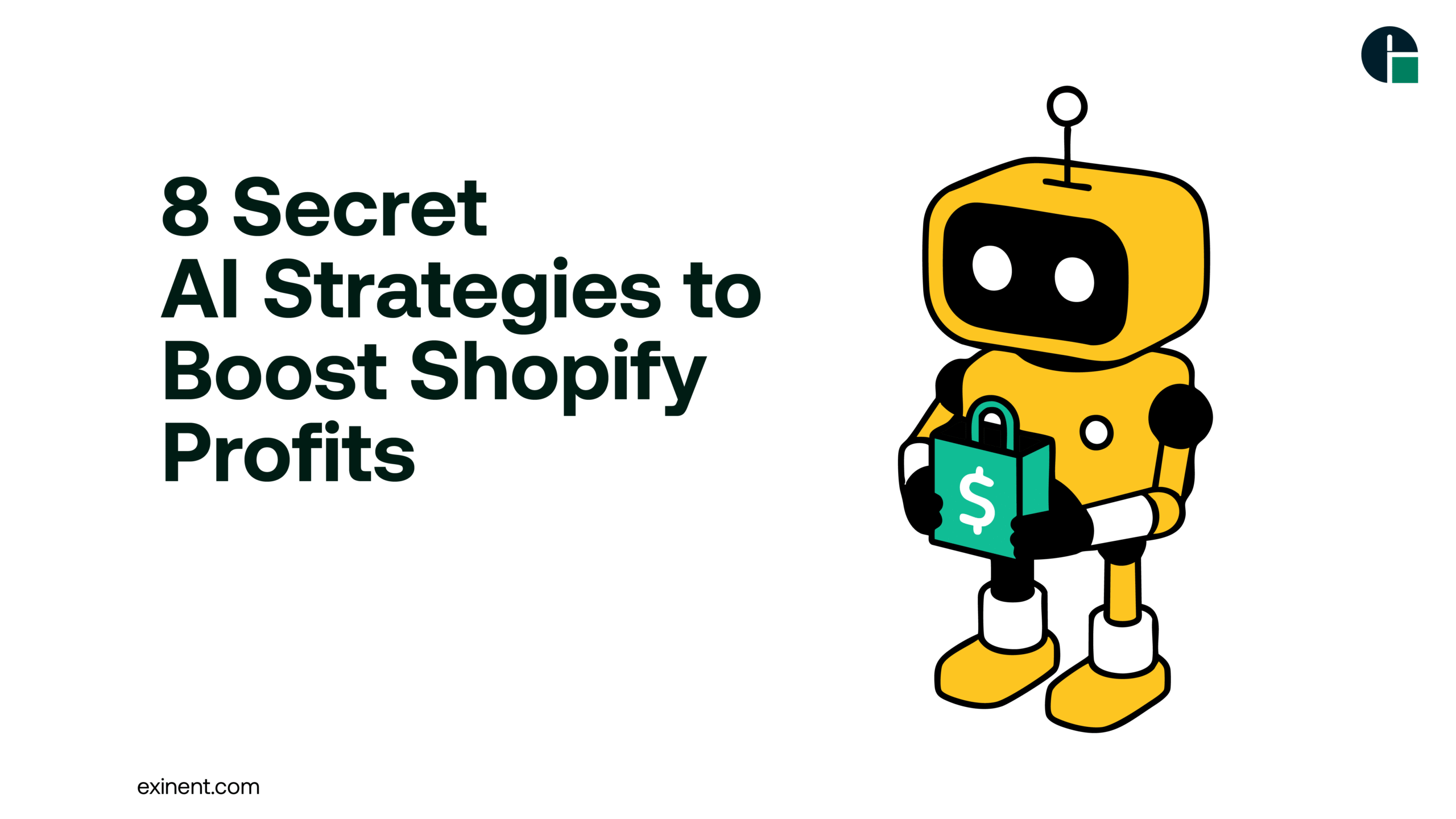
In 2025, artificial intelligence (AI) has become a game-changer for e-commerce businesses, and Shopify merchants are no exception. By harnessing AI-driven tools and strategies, Shopify Development store owners can enhance customer experiences, optimize operations, and ultimately boost profits. In this blog, we’ll explore eight powerful AI strategies that can help you maximize your Shopify store’s profitability.
1. Implement AI-Powered Product Recommendations
AI-driven product recommendation engines analyze customer behavior and preferences to suggest personalized products. By offering tailored recommendations, you can increase average order value and enhance customer satisfaction. Shopify’s AI tools, such as the Sidekick assistant, can assist in delivering personalized product suggestions to your customers.
2. Utilize Conversational AI for Customer Support
Implementing AI-powered chatbots can provide real-time assistance to customers, answering queries and resolving issues promptly. This not only improves customer satisfaction but also reduces the workload on your support team. Shopify’s AI tools can integrate seamlessly with your store to offer efficient customer support.
3. Optimize Pricing with AI Algorithms
AI algorithms can analyze market trends, competitor pricing, and demand fluctuations to suggest optimal pricing strategies. Dynamic pricing ensures that your products are competitively priced, maximizing sales and profit margins. Shopify’s AI tools can assist in implementing dynamic pricing strategies for your products.
4. Enhance Email Marketing with AI Personalization
AI can analyze customer behavior and preferences to send personalized email campaigns. By delivering relevant content and product recommendations, you can increase open rates, click-through rates, and conversions. Shopify’s AI tools can help automate and personalize your email marketing efforts.
5. Leverage AI for Inventory Management
AI can predict demand patterns and optimize inventory levels, reducing the risk of overstocking or stockouts. By maintaining optimal inventory levels, you can improve cash flow and ensure product availability. Shopify’s AI tools can assist in forecasting demand and managing inventory effectively.
6. Use AI-Driven A/B Testing for Continuous Improvement
AI can automate A/B testing processes, analyzing customer interactions to determine the most effective website layouts, product placements, and content. Continuous optimization based on AI insights can lead to higher conversion rates and improved user experience. Shopify’s AI tools can facilitate A/B testing and optimization efforts.
7. Implement AI-Powered Fraud Detection
AI algorithms can detect unusual purchasing patterns and flag potential fraudulent transactions in real-time. By preventing fraud, you can protect your revenue and maintain customer trust. Shopify’s AI tools can integrate with your store to provide robust fraud detection capabilities.
8. Utilize AI for Social Media Marketing
AI tools can analyze social media trends and customer sentiment to create engaging content and targeted advertising campaigns. By aligning your marketing efforts with customer interests, you can increase brand awareness and drive traffic to your Shopify store. Shopify’s AI tools can assist in optimizing your social media marketing strategies.
Conclusion
Integrating AI into your Shopify store’s operations can lead to significant improvements in customer experience, operational efficiency, and profitability. By implementing these eight AI strategies, you can stay ahead of the competition and achieve sustainable growth. For businesses seeking professional assistance in implementing AI solutions, partnering with a reputable Shopify Development Company can provide the expertise needed to leverage AI effectively.
FAQ’s :
What are AI strategies for Shopify to maximize profits?
AI strategies for Shopify use machine learning and automation to improve sales, optimize marketing, and enhance customer experience. Examples include AI-powered product recommendations, dynamic pricing, chatbots, and automated email campaigns.
How does AI improve Shopify store sales?
AI analyzes customer behavior, predicts trends, and suggests personalized products. Stores using AI can see higher conversion rates, improved average order value, and reduced cart abandonment.
What are the 8 secret AI strategies for Shopify?
The main strategies include: 1) Personalized product recommendations, 2) Dynamic pricing, 3) AI chatbots, 4) Automated email marketing, 5) Inventory forecasting, 6) Customer segmentation, 7) Predictive analytics, 8) Visual search and image recognition.
Is using AI for Shopify worth the investment?
Yes, AI can increase revenue by 10–30% through personalization, automation, and better targeting. ROI depends on store size, niche, and implementation quality.
How do I implement AI strategies in my Shopify store?
Start by selecting AI apps or tools that fit your goals. Install apps for product recommendations, chatbots, or analytics, and regularly monitor results to optimize performance.
What are the risks of using AI in Shopify?
Risks include over-reliance on automation, incorrect recommendations, and data privacy issues. Mitigate by monitoring AI outputs, maintaining human oversight, and following data protection laws.
How much does AI for Shopify cost?
Costs vary from free apps to $50–$300/month for advanced AI tools. Pricing depends on features like analytics depth, number of products, and automation complexity.
